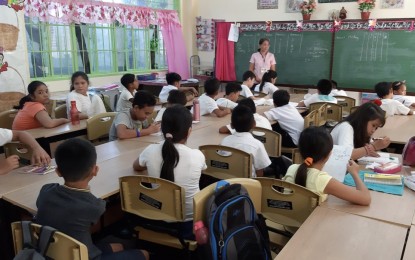
File photo
MANILA – Socioeconomic Planning Secretary Karl Kendrick Chua has cited the importance of gradually reopening schools as prolonged absence of face-to-face classes will impact on the competitiveness and productivity of the country’s workforce in the future.
During the Economic Journalists Association of the Philippines (EJAP) webinar Thursday, Chua said one of the consequences of face-to-face school closure is less learning among students.
“Based on US studies, online learning is only around 52 percent (as) effective as face-to-face learning,” he said.
He added this may be less effective in the Philippines as the country uses other forms of learning like modules, which is estimated at 37 percent as effective as face-to-face schooling.
Chua, who is also the National Economic and Development Authority (NEDA) director general, called for the gradual resumption of face-to-face classes to help mitigate long-term impacts of remote learning on students’ productivity and mental health.
“Our actions today against Covid-19 (coronavirus disease 2019) do not come without consequences. There are also costs to future generations, especially on our human capital. Without understanding these, we would not have a complete and objective understanding of what we are doing today,” he said.
Management Association of the Philippines (MAP) co-chair for National Issues Committee Rizalina Mantaring echoed the need to gradually reopen face-to-face schooling.
“With (the) stoppage of education, the ADB (Asian Development Bank) estimated that every year that a kid is out of school results in 10 percent lower wages in the future,” she said.
She added education and training of human capital is a major factor that will determine how a country will perform in the future.
“Education might be an area that might not yield immediate impact. But it is the area that will make really the most impact and the most influence on how we turnout as a nation in the future,” Mantaring said.
Next month, the country will pilot limited face-to-face classes in areas where risk of Covid-19 is low. (PNA)
